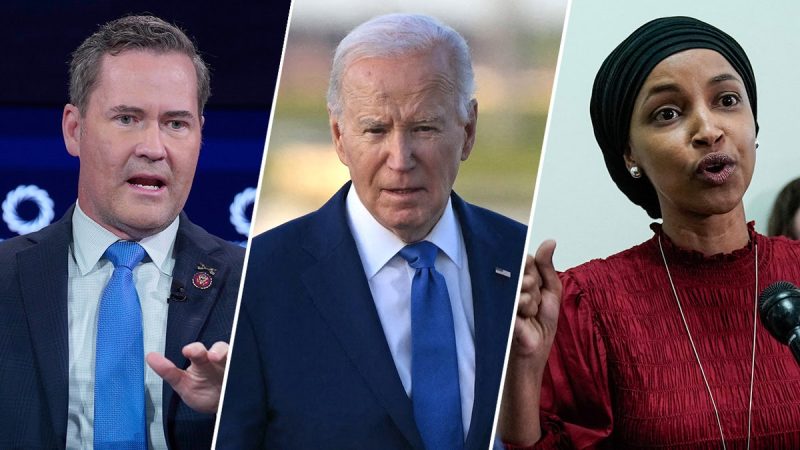In a recent turn of events, tensions have risen within the Democratic Party as President Joe Biden faces backlash from Republican lawmakers and pro-Israel groups. The accusations leveled against Biden suggest he is capitulating to anti-Israel sentiments, with critics arguing that his administration’s decision-making reflects a shift away from unwavering support for Israel.
The latest controversy has emerged amidst ongoing protests by pro-Palestinian activists against U.S. military aid to Israel in light of the recent conflict in Gaza. The protests, which have gained traction across the country, pose a significant challenge to the Biden administration’s foreign policy stance on the Israeli-Palestinian conflict.
The political discourse reached a boiling point when progressive members of the Democratic Party, known as the Squad, claimed a victory following a decision by the Biden administration to allow the opening of the Rafah border crossing between Gaza and Egypt. The move, seen as a win for the Squad’s pro-Palestinian advocacy, has further fueled accusations of Biden caving to pressure from anti-Israel protesters.
Republicans have been quick to seize on this development, framing it as a betrayal of longstanding U.S. support for Israel and a concession to radical elements within the Democratic Party. They argue that Biden’s willingness to entertain the demands of the Squad and other pro-Palestinian groups sends the wrong message to America’s allies in the Middle East and undermines the traditional bipartisan consensus on Israel.
The rift within the Democratic Party over the issue of Israel has exposed deep ideological divisions and competing priorities among its members. While some Democrats view the Biden administration’s actions as a necessary step towards a more balanced approach to the Israeli-Palestinian conflict, others see it as a dangerous departure from the party’s historical solidarity with Israel.
As the debate intensifies, it remains to be seen how the Biden administration will navigate the complexities of U.S. foreign policy in the Middle East. The pressures from both domestic and international actors are sure to test the administration’s commitment to upholding American interests while also addressing the legitimate concerns of various stakeholders involved in the Israeli-Palestinian conflict.
In the midst of these challenges, one thing is clear: the question of U.S. support for Israel will continue to be a contentious issue that defines the foreign policy agenda of the Biden administration in the months and years to come. Only time will tell how the administration strikes a delicate balance between competing interests and values in the pursuit of peace and stability in the region.


































